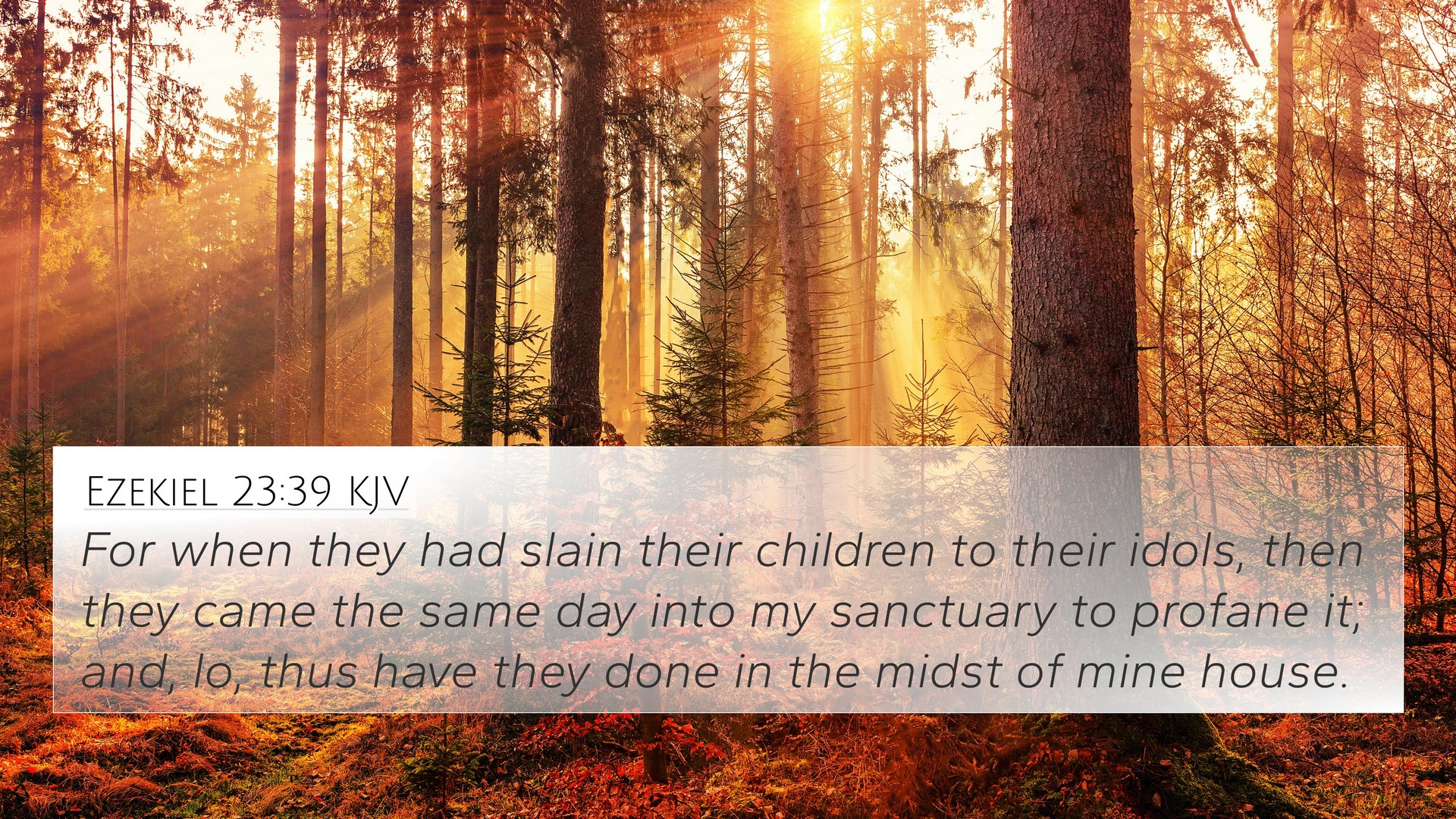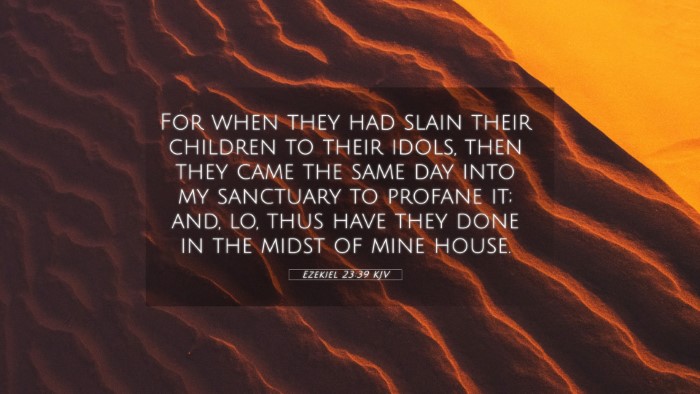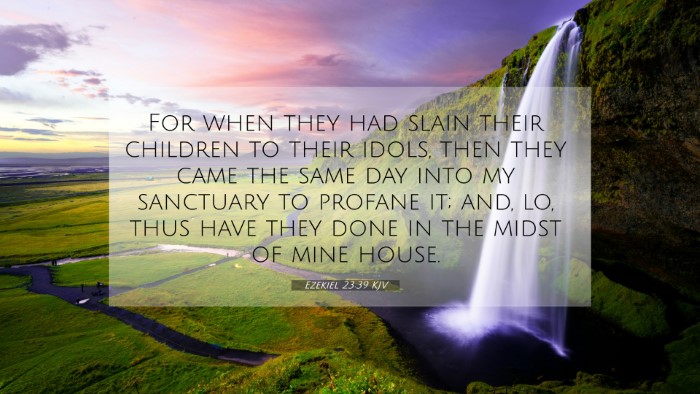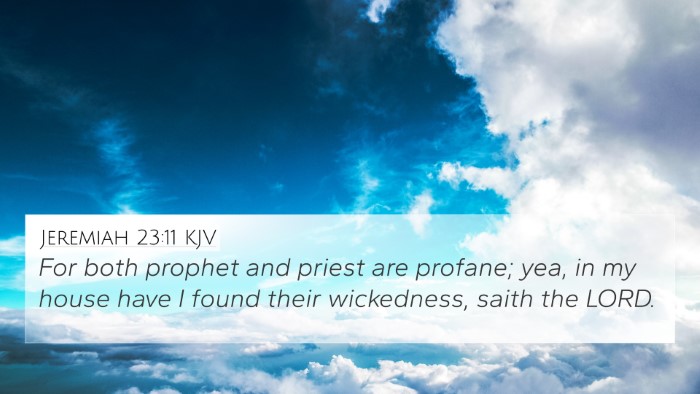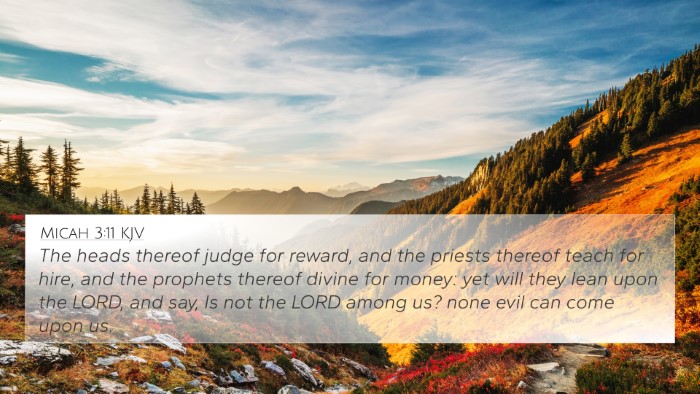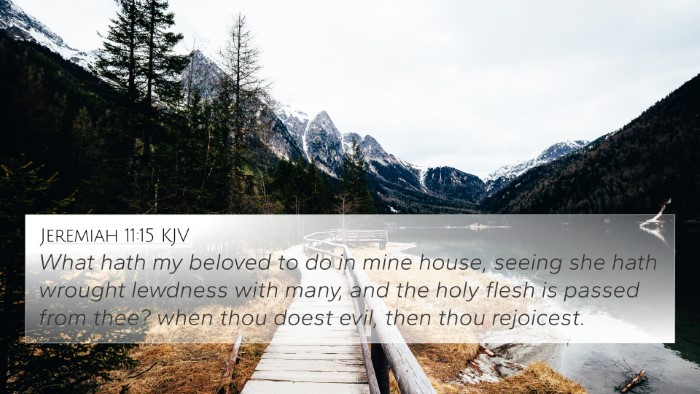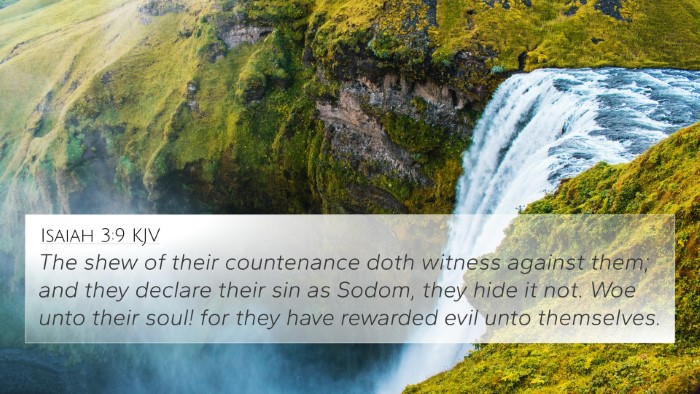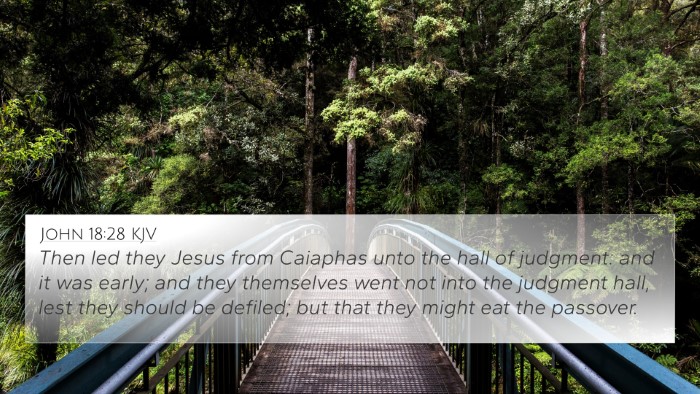Ezekiel 23:39 - Commentary and Interpretation
Ezekiel 23:39 presents a vivid and allegorical portrayal of the unfaithfulness of Israel and Judah to God, represented through the imagery of two sisters, Oholah and Oholibah. This verse offers deep insights into the consequences of spiritual infidelity and the importance of fidelity to God's covenant.
Verse Context and Structure
The surrounding chapters in Ezekiel highlight the judgment upon Jerusalem and the rebellious behavior of God’s people. Ezekiel's use of metaphor and personification in this verse serves to illustrate spiritual truths about idolatry and moral decay.
Meaning and Themes
- Spiritual Adultery: The act of turning away from God to pursue false idols is described as adultery, emphasizing the seriousness of breaking the covenant relationship.
- Judgment: The consequences of such actions involve divine judgment, which is a recurrent theme throughout the prophetic literature.
- Restoration and Hope: Despite the somber tone, the broader context of Ezekiel also emphasizes God’s desire for restoration and reconciliation.
Insights from Public Domain Commentaries
Several scholars have provided interpretations that enrich our understanding of Ezekiel 23:39:
- Matthew Henry: Highlights the nature of God’s displeasure with Israel's idolatry and reflects on how God’s people have been unfaithful, committing acts that lead them away from His commandments. His commentary emphasizes repentance as a necessary step toward restoration.
- Albert Barnes: Focuses on the metaphor of the two sisters representing the nations of Israel and Judah. He underscores the historical context of their backsliding and the consequent judgment that would befall them as a result of their choices.
- Adam Clarke: Discusses the imagery used in the verse, relating it to the consequences of unfaithfulness to God’s will. He notes how the actions of the two sisters serve as a cautionary tale for future generations.
Cross-References and Related Bible Verses
Understanding Ezekiel 23:39 can be deepened by exploring its connections to other scriptures. Here are several Bible verses that resonate with its themes:
- Hosea 1:2: The metaphor of marital unfaithfulness is similarly used to depict Israel's relationship with God.
- Jeremiah 3:6-10: This passage elaborates on the unfaithfulness of Israel and Judah, paralleling Ezekiel's lament.
- Isaiah 1:21: Describes Jerusalem as a once faithful city that has become corrupt, similar to the sisters' unfaithfulness.
- Revelation 2:4-5: Addresses the church's loss of love for God, echoing the sentiments seen in Ezekiel.
- Matthew 12:39: Jesus references signs and unfaithfulness, linking to the ongoing theme of faithfulness.
- James 4:4: Highlights enmity against God through friendship with the world, relating closely to the imagery of adultery.
- Ezekiel 16:30-34: Further illustrates the unfaithfulness of Jerusalem and God's disdain for her actions.
Conclusion
Ezekiel 23:39 serves as a powerful reminder of the importance of fidelity to God and the dangers of spiritual infidelity. The insights from public domain commentaries and cross-referenced scriptures provide a comprehensive understanding of this poignant verse.
SEO Keywords
Utilizing tools for Bible cross-referencing and exploring thematic Bible verse connections enhances our comprehension of scriptures like Ezekiel 23:39. Understanding the inter-Biblical dialogue can enrich personal study and sermon preparation.
